Famous Traditional Handicraft Villages In Vietnam

Among the numerous reasons why Vietnam is one of the most-wanted destinations in Asia, having lots of traditional handicraft villages is the highlight! Across the country, you can find the signature traditional handicraft that can vividly show the cultural elements of its regions. Besides, the villages know how to conserve the handicraft for centuries through many generations, therefore you can participate in the process designed for tourists! This experience is beyond exciting. Let’s discover the most exceptional Vietnamese traditional handicraft villages, we’re sure that you will want to visit them immediately.
Unique Traditional Handicraft Villages in North Vietnam
Bat Trang Pottery Village
Address: Bat Trang commune, including Giang Cao village and Bat Trang village, which belongs to Gia Lam district, Hanoi.
Price: Free entrance fee
According to Vietnamese history, Bat Trang Pottery Village was formed during the Ly Dynasty. The village was located on the left bank of the Red River, Hanoi, which is Gia Lam District now.
After more than 500 years of existence and development, Bat Trang Pottery Village has become the country's ceramic production center. Until now, the village still retains the precious traditional culture and the artistic value placed on each product.

Visit the pottery market
You can admire many pottery stores in the Bat Trang 6.000 m sq market. The ceramic product starts at 15.000 VND per piece. As a traditional handicraft village, each product is carefully designed. For example, you can take a pottery cup as your souvenir.

Make your own pottery item
The workshop for making pottery is 50.000 VND per guest. At the workshop, you can make pottery for any shape you want. The artist will help you in the shaping process, then bake the product for you. After finishing the workshop, you can bring your final product home.
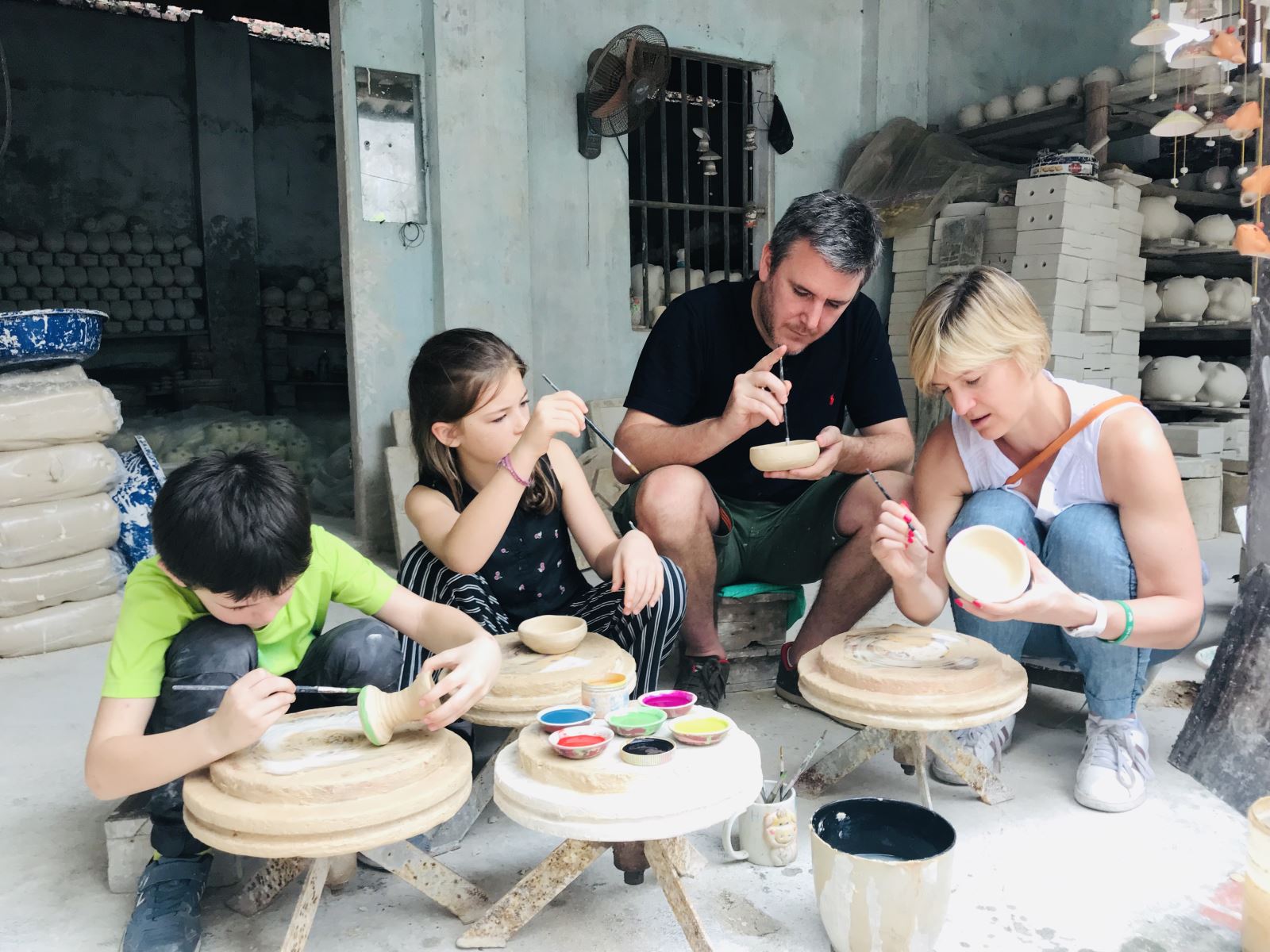
Wander around ancient roads and house
Walking around the ancient village area, or entering the small alleys is one of the interesting things when coming to Bat Trang Pottery Village. Because you can take vintage pictures with the unique background of the moss-covered walls, and the ceramic drying racks along the village road,...

Try Bat Trang specialties
Visiting Bat Trang village, you’ll have a chance to try the tea from Chloranthus, the sweet soup with sticky rice. Or, you can have a bowl of squid and bamboo shoots, which are all torn into small yarns. Moreover, the food is fairly cheap, just around 30.000 VND per dish.
>> Explore Hanoi and Bat Trang pottery village: Hanoi Cultural & Culinary Experience Day Tour

Dong Ho Folk Painting Village
Address: This traditional handicraft village is located on the bank of the Duong river, in the territory of Song Ho commune, Thuan Thanh district, Bac Ninh province. Ho Village is about 16km south of Bac Ninh city center.
Price: Free entrance fee
Ho village was formerly the cultural, political, and economic center of the North. Unlike Bat Trang pottery village, this place mainly focuses for you to visit and shop for village products such as antique paintings, bamboo books, fans…
Admire the traditional Dong Ho paintings
The best time for you to visit is in the last months of the year and the first spring months of the year. At this time, the weather is cold, you can combine sightseeing and buying Dong Ho paintings as a souvenir.
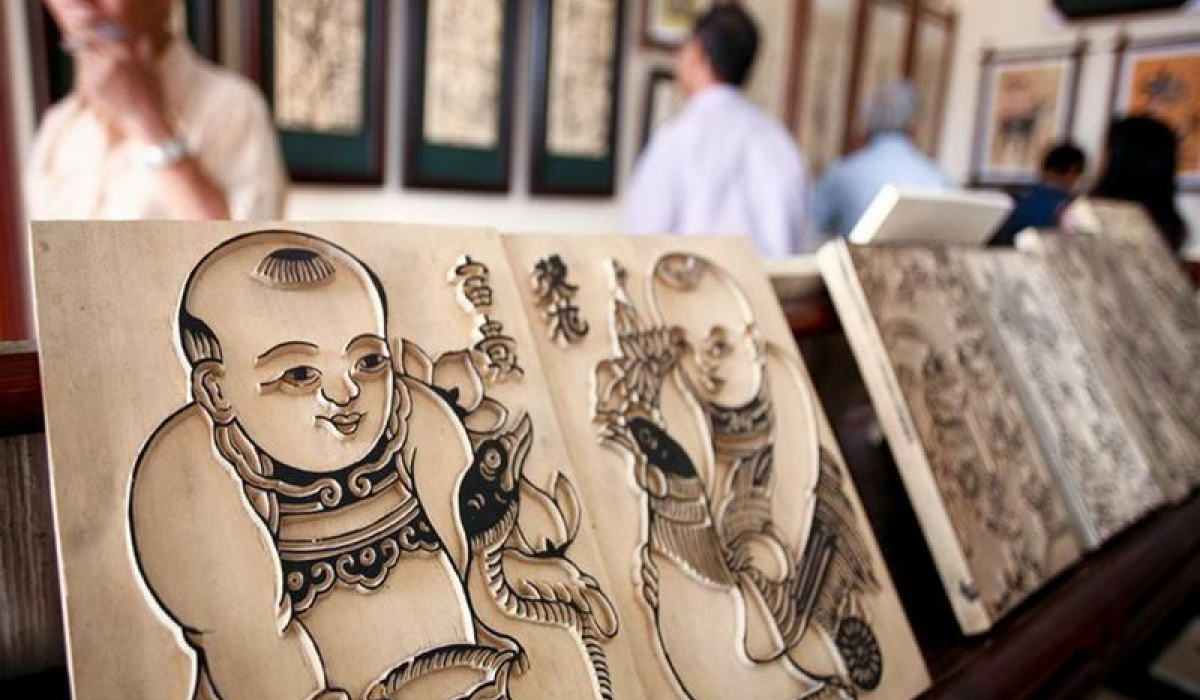
Learn about the painting process
Visitors can learn about the basic process of making artwork. Moreover, you can also join a workshop to make your own art.
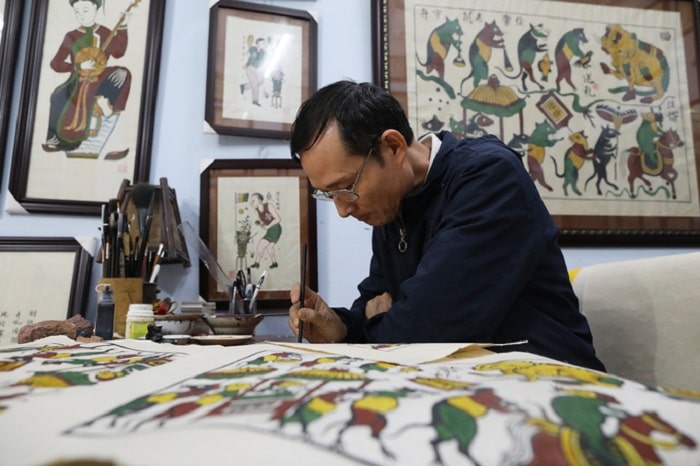
Visit ancient temples and pagoda
For more interesting and comfortable sightseeing, you can visit But Thap pagoda and Dau pagoda. Dau Pagoda is located right in the center of Bac Ninh, where the ancient Buddhism of our country is kept, including the ancient citadel and the tomb of Sy Niep.
Moreover, you should wear comfortable clothes and ensure privacy when visiting these temples due to Vietnamese culture. You also need to choose the most appropriate outfit.
>> The beauty of Northern and Central Vietnam will never disappoint you: Authentic Beauty of Northern Central Vietnam 8 Days
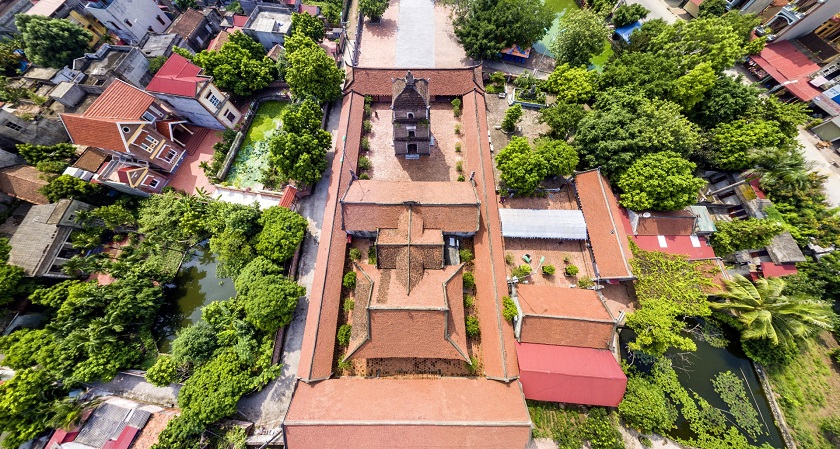
Unique Traditional Handicraft Villages in Center Vietnam
Hoi An Silk Village
Address: No.28 Nguyen Tat Thanh Street, Hoi An, Quang Nam Province. It’s far 1 km from Hoi An ancient town around 1km
Price: The entrance fee is 50.000 VND per person
Hoi An is a town of handmade dresses, ao dai, and high-class silk fiber. Therefore, visiting Hoi An Silk Village means that you can discover the history of silk on this land. Learning more about the way Hoi An people complete the product is also an exciting experience.
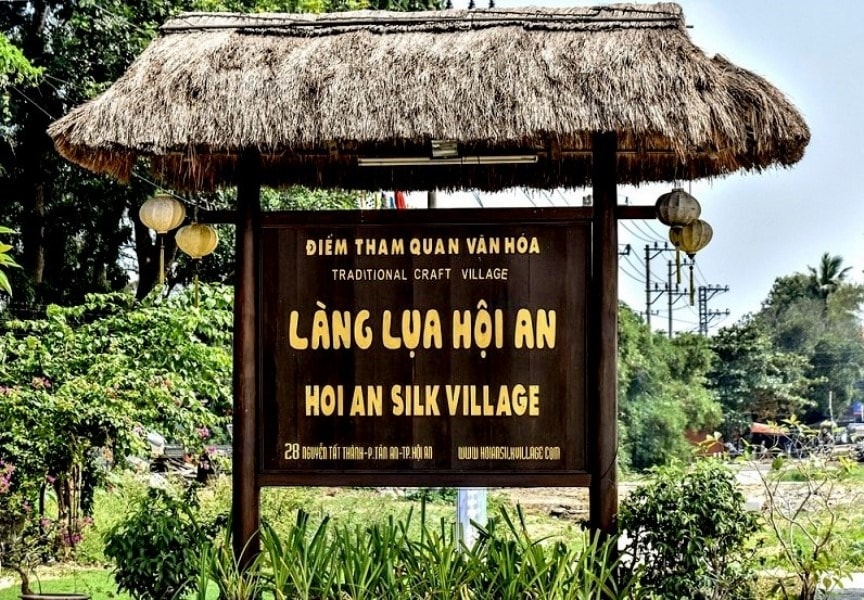
Explore the ancient space of Hoi An traditional house
When coming to Hoi An Silk Village, you will admire the ancient houses of the Hoi An people, dating back to the 19th century. At the big house in the middle is the place to worship Ba Chua Tam Tang, the royal title called Doan Quy Phi. She is a person who made great contributions to preserving and developing silk weaving and bringing silk in Hoi An to the world.
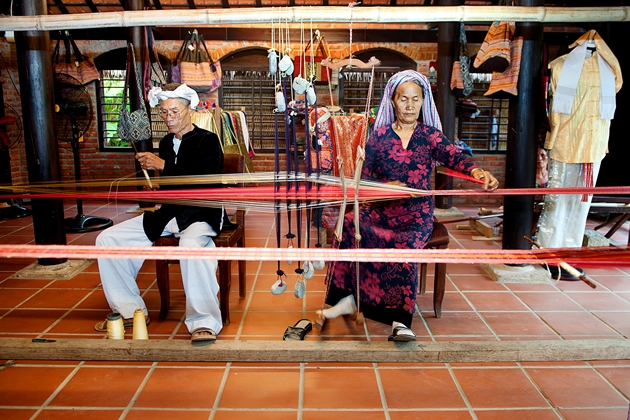
Admire the collection of Ao Dai and traditional costumes of 54 ethnic groups in Vietnam
The traditional house of Hoi An Silk Village is currently displaying more than 100 graceful dresses of Vietnamese women, bearing the imprint of the development during 3000 years of history. The traditional costumes of 54 ethnic groups are the clearest reflection of the country's multiculturalism. This exhibition space strongly impresses domestic and foreign tourists.
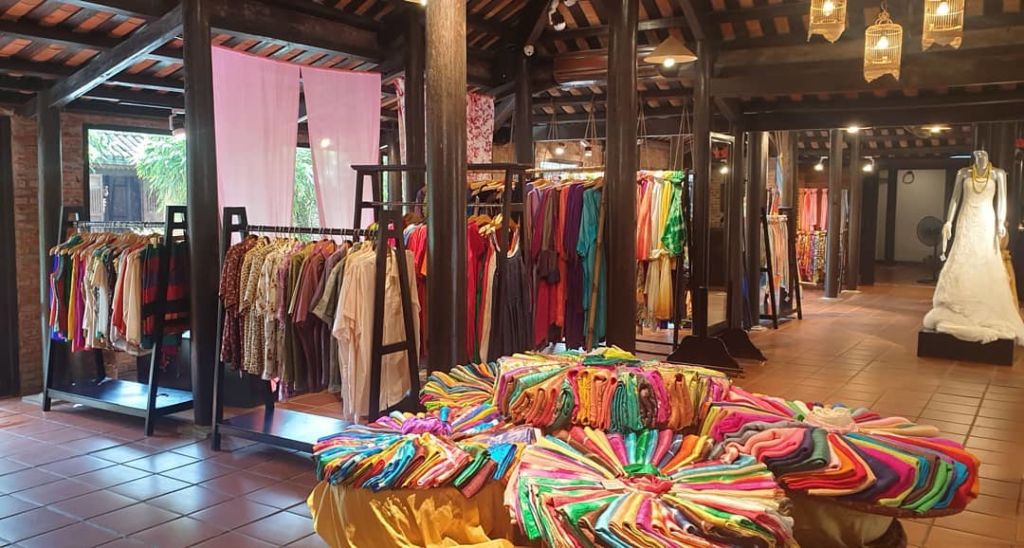
Discover how to raise silkworms for silk
Coming to Hoi An silk village, you will learn about how to raise and care for silkworms from small to large. People pick leaves to feed the silkworms until they are old enough, then leave them alone for the silkworms to wrap their own cocoons and harvest them. The silkworms are raised carefully and meticulously.

Visiting the silk weaving room
Silk after spinning will be cooked at a certain temperature and time (depending on the quality of silk artisans want to produce to adjust the cooking time). After cooking, the silk is attached to the frame one by one, and the silk weaving process begins. Here, you will witness first-hand the process of creating beautiful silk fabrics with exquisite motifs and world quality. All looms from the ancient to modern Champa period are displayed at Hoi An silk village for visitors to visit.
>> Take the Hoi An tour for your exploration: Vietnam Travel Line - 14 Days
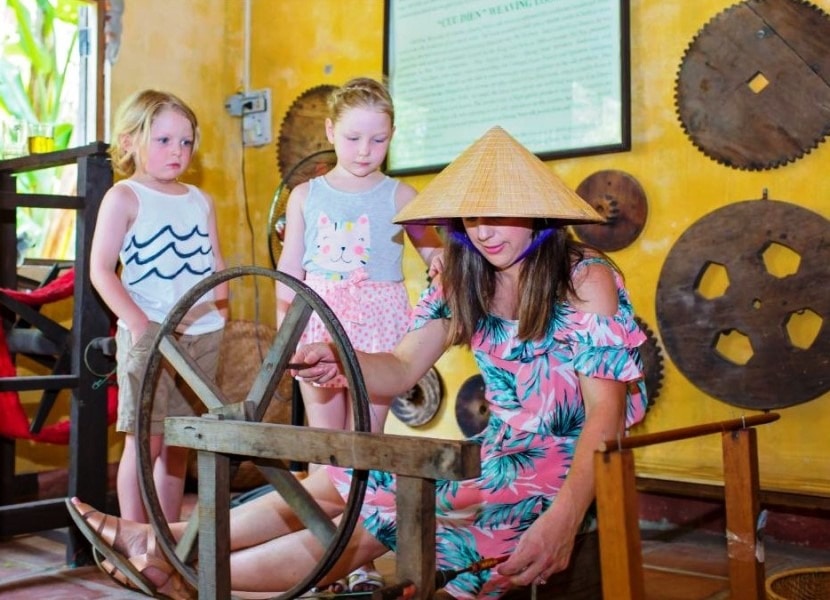
Non Nuoc Stone Carving Village
Address: Under the Ngu Hanh Son mountain
Price: Free entrance fee
Located right at the foot of Marble Mountains, Non Nuoc stone handicraft village is one of the oldest traditional handicraft villages in Da Nang, becoming the symbol of the city.
Formed in the middle of the 17th century, when stoneworkers in Thanh Hoa came to settle down and live at the foot of Ngu Hanh Son mountain, up to now, Non Nuoc craft village has nearly 500 handicraft production establishments. Over 300 years, this place has produced thousands of extremely unique products.
Made of the same marble blocks taken from Ngu Hanh Son mountain, the stone statues in Non Nuoc have the beauty that no other traditional stone village has, which is also part of the reason that Non Nuoc craft village become one of the most popular tourist destinations in Da Nang.
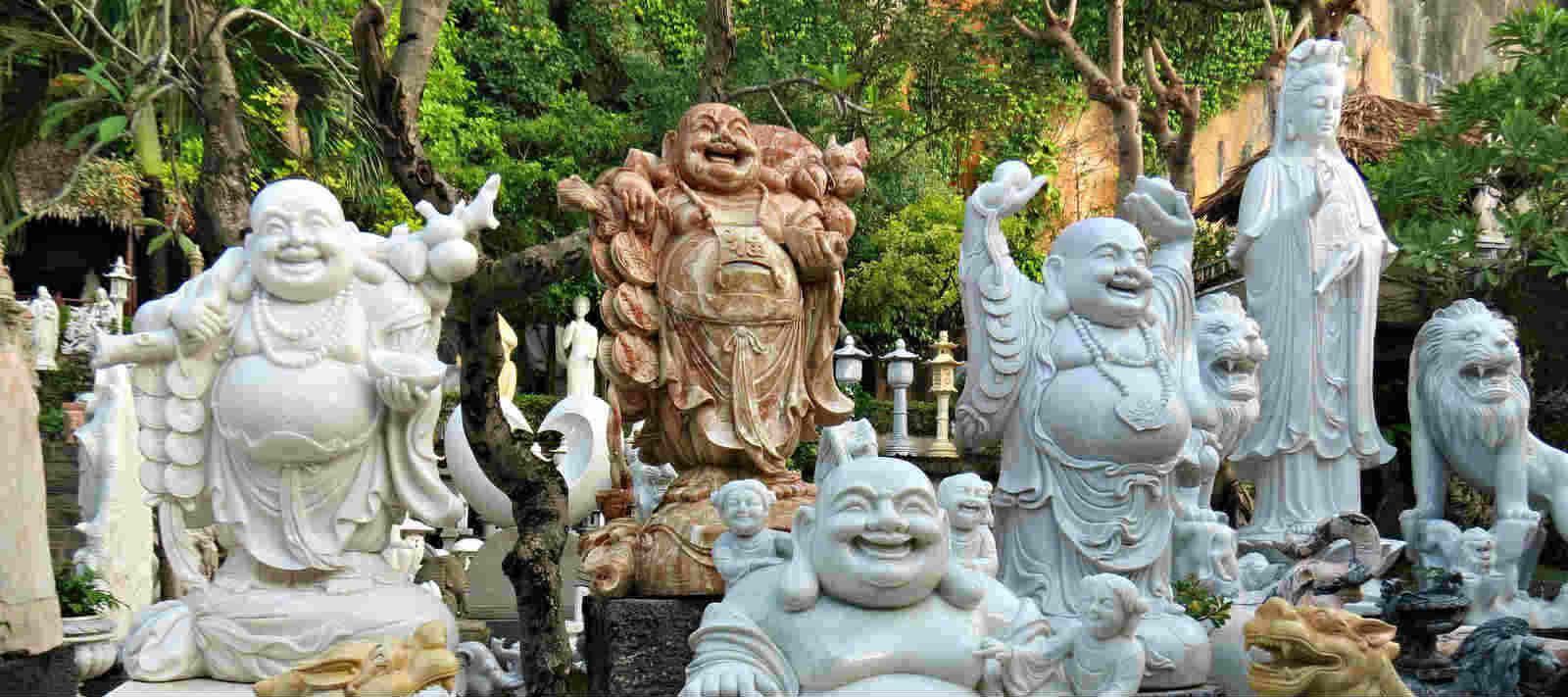
Buy stone for souvenir
Visiting Non Nuoc stone carving village, visitors will be able to visit and choose very sophisticated souvenirs. Each work is a feat to each line to create a beautiful and meaningful shape. Stone products in Non Nuoc craft village are diverse with many shapes from ancient to modern such as simple everyday utensils or ancient mascots. Any visitor coming here will also choose for themselves stone souvenirs to keep memories of an extremely interesting tourist destination in Da Nang.

Learn about the past of the Champa ethnic group
Non Nuoc stone handicraft village is a place of harmonious interference between Champa culture and ancient Viet, with profound influence from Cham culture in My Son holy land. Visitors can clearly see the influence of Cham sculpture in the works of Non Nuoc villagers from ancient times to the present day.
As one of the most appealing traditional handicraft villages, visiting stone processing facilities, you will be especially impressed when you see hundreds of Champa statues of different sizes and shapes. You’ll feel like living in a world where there are dancers in Apsara, the idols of Indar, Siva, the Nadin cow, the Garuda bird, Yoni, and Linga statues.
>> Visit amazing Danang city: Heavenly Danang Bana Hills Golden Bridge Tour 5 Days

Unique Traditional Handicraft Villages in South Vietnam
Ben Tre Coconut Candy Village
Address: Ward 7 - Ben Tre city
Coconut candy originates from Mo Cay. Nowadays, Ben Tre coconut candy is a famous specialty of the country, bearing the culture of coconut land. When coming to Ben Tre, visitors cannot forget the "coconut candy" that is delicious, fatty, and fragrant. However, nowhere else can make the candy as tasty as Ben Tre’s traditional handicrafts villages.
Later, due to the needs and conditions of economic development, the production of coconut candy was expanded beyond the Mo Cay district and formed a coconut candy production village in Ward 7 - Ben Tre city. This is a destination for tourists to visit, explore and experience.
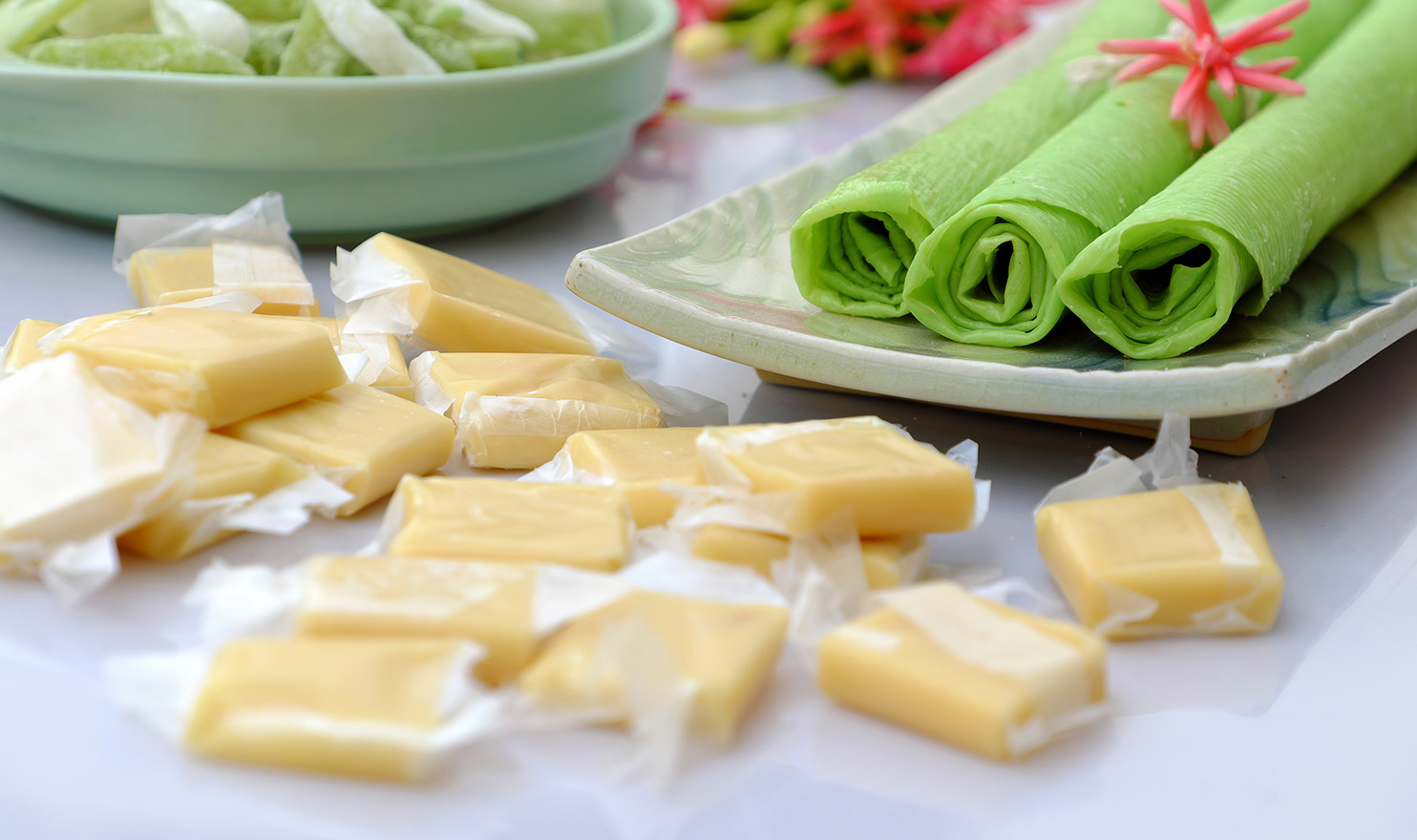
Give the sweetness of coconut to your beloved people
It can be said that coconut candy is always attached to the journey to discover the culture, cuisine, and tourism in the land of coconut. Therefore, when visitors come to Ben Tre, it seems everyone is looking to buy coconut candy as gifts for family, relatives, and friends.
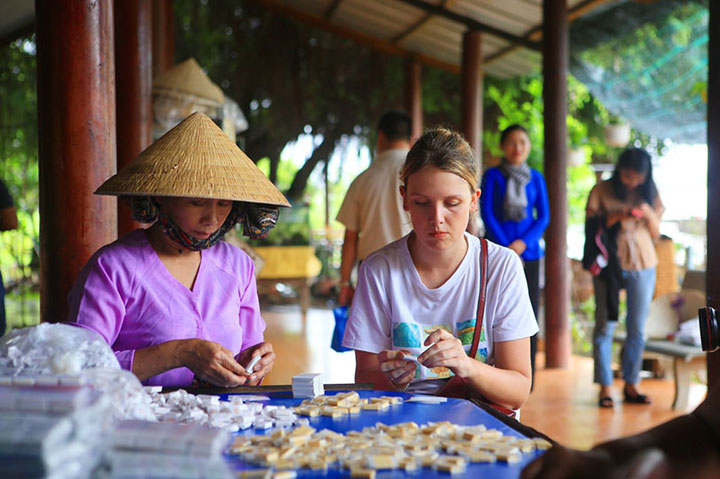
Witness the cooking process
At Chau Thanh eco-tourism sites, Ben Tre city, there are traditional coconut candy production sites for visitors to witness with their own eyes, as well as directly participate in the process of making coconut candy products. Thereby, visitors experience and feel the thoughts and feelings of the people in the coconut water area.
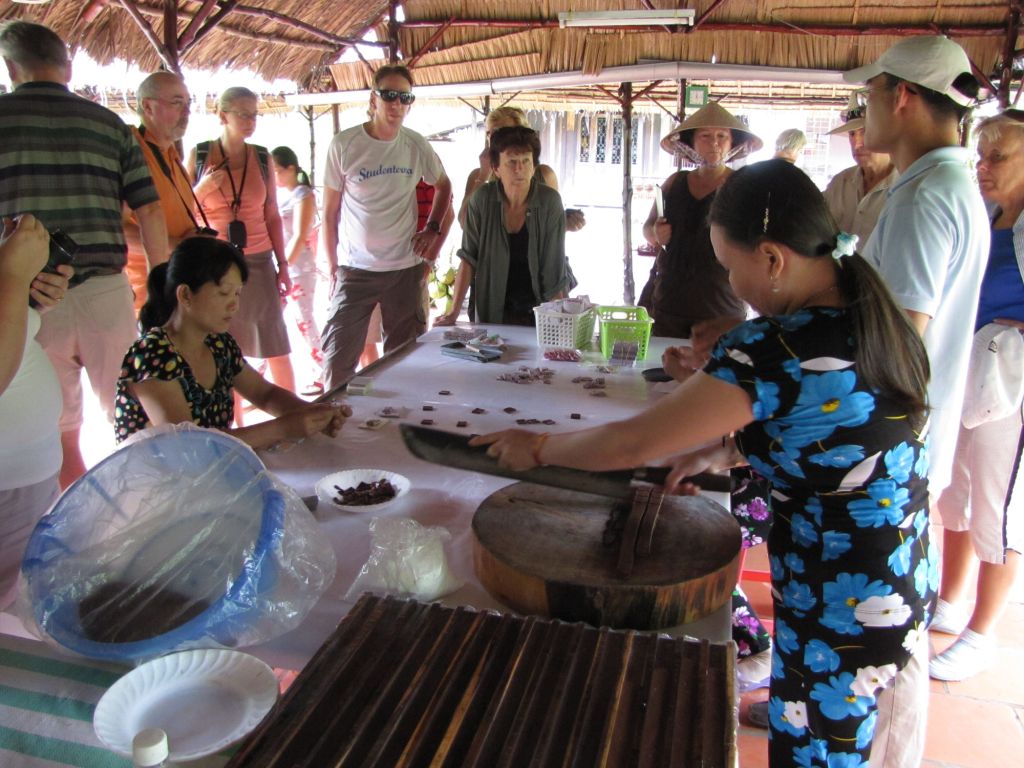
Kien Giang Knitting Lepironia articulata (Bang grass)
Address: Phu My Commune, Kien Giang Province, Rach Gia city
According to history, due to living in the midst of saline soil, the Khmer people here patiently turned the Bang grass into a commodity with daily life products and handicrafts that brought a significant source of income.
The work of knitting products from bang grass is quite light but requires ingenuity, very suitable for both women and children to participate. The products have very sophisticated patterns but still, carry the "soul" of the genuine countryside. Pattern lines gradually appear under the skillful hands of artisans in the village.
Take a kind of Bang grass product home
As you know, the local people make a variety of products such as cushions, bags, home appliances… Therefore, by visiting these traditional handicraft villages in Kien Giang, you will easily find your favorite items from Bang grass.
>> Discover the colorful Mekong Delta: Sai Gon - Cai Be - Can Tho - 4 Days
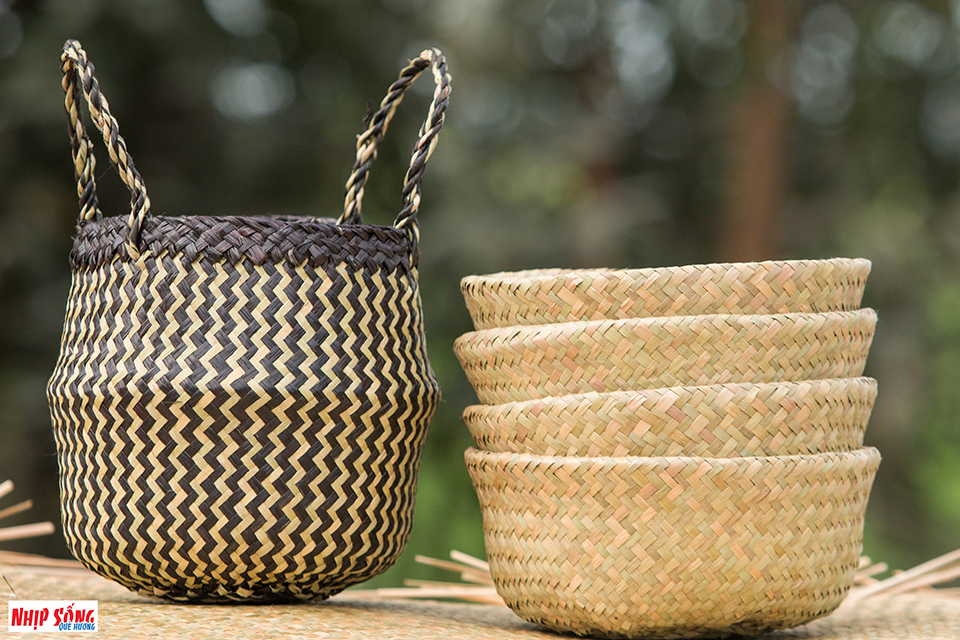
Final Thoughts
There are still other traditional handicraft villages that we cannot mention in this blog because of the limitation. We hope that with these famous traditional craft villages above, you can understand more about Vietnamese culture and the Vietnamese soul in every traditional item.
If you want to see the real items and experience the process of making them, don’t hesitate to contact us. As one of the leading inbound tours in Vietnam, we believe that you’ll receive the best services at a cost-effective price.














